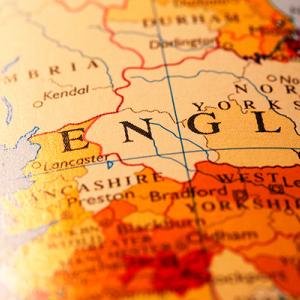All regions and nations of the UK are equal, but some are more equal than others.
In a nutshell, that’s the logic of the government’s £1bn funding deal with Northern Ireland’s Democratic Unionists, in return for propping up Theresa May’s parlous parliamentary position.
It’s not pretty. Allegations have been flung that this ‘grubby’ arrangement amounts to a ‘bung’ so the prime minister can rent the allegiance of the DUP’s 10 MPs.
Amid the tight arithmetic of the House of Commons, however, it’s a case of needs must for the Conservatives.
But this wasn’t supposed to happen.
The advent of English regional devolution in the shape of metro mayors and devo packages was meant to offset the ability of Northern Ireland, Scotland and Wales to strike harder bargains with the Treasury than the English regions ever could.
Yet again, however, the sharp-elbowed DUP has been invited to barge to the front of the queue to benefit from the Exchequer’s benevolence.
The deal they have extracted from the prime minister will go on reversing cuts to public services and on infrastructure projects in Northern Ireland – exactly the same priorities for which the English regions are crying out for funding.
England’s regions have not taken kindly to British ministers ladling scarce public funds over Northern Ireland at, as they see it, their expense. Not when Northern Ireland is already the most subsidised part of the UK – with 21% more spent there than the national average.
The upshot is that Northern Ireland’s package – at least £1bn of new money (and quite possibly a lot more, taking into account the financial ‘flexibility’ agreed in the earlier Stormont House and Fresh Start packages) – has made the much less generous ‘devo deals’ former chancellor George Osborne struck with our big English cities seem like small change.
By way of comparison, the DUP’s £1bn package is spread over two years. Liverpool and Sheffield have devo deals worth £900m – over 30 years.
Little wonder that Labour’s national party chair, Ian Lavery, an MP in the disadvantaged north east of England, described the DUP deal as ‘nothing short of political bribery’.
Figures compiled by the House of Commons Library for Labour show why politicians like Lavery are so unhappy.
Northern Ireland is set to receive an extra £244 per person every year of the deal. In contrast, the devolution agreement between the Treasury and the North East provides just £15 per person, per year.
Steve Rotheram, the powerful new metro mayor for Merseyside has also weighed in, describing the DUP’s package as a ‘grubby deal,’ while Mike Amesbury, the Labour MP for Weaver Vale in Cheshire, calculated that if the Liverpool City Region was treated with the same generosity as Northern Ireland, it would be now £336m a year better off.
Just down the M62, Greater Manchester’s new metro mayor Andy Burnham has scolded the government for finding money to ‘keep itself in power’ by siding with the DUP, but not to sort out the 28 buildings in the North West of England with cladding similar to that used at Grenfell Tower.
Former Labour deputy prime minister and champion of English regional development, John, now Lord Prescott, used a recent column in the Sunday Mirror to remind Theresa May that on the election trail she had told a nurse during one of the TV election debates there was no ‘magic money tree’ to fund a pay rise for her.
‘But she was able to shake its branches to deliver £100m for each Democratic Unionist Party MP to buy their support,’ Prescott blasted.
Neither are the Scots and Welsh particularly pleased. Welsh first minister Carwyn Jones described the arrangement as ‘a straight bung’ that ‘further weakens the UK’.Scottish First minister Nicola Sturgeon has been equally coruscating, referring to it a ‘grubby, shameless deal’ and the ‘worst kind of pork barrel politics.’
Is this merely a case of rival parts of the UK letting off steam? Are there any real consequences for the DUP and Northern Ireland in the longer term?
It certainly matters in as much as the special treatment makes Northern Ireland appear, even more than usual, a place apart. As Northern Irish society rapidly changes, with support for Unionism steadily eroding, we are no more than a few years away from a border poll on its constitutional status (a proviso allowed for in the Good Friday Agreement).
The perceived iniquity of the DUP’s deal creates a powerful new argument that Northern Ireland’s departure from the Union will be good news, particularly for the north of England.
To put it another way, does Arlene Foster think the provincial leaders of England will help her make an argument about why Northern Ireland should remain in the Union when the time comes? I wouldn’t bet on it.
In exploiting a short-term tactical advantage at the expense of the English regions, Arlene and the DUP may have just created a powerful set of long-term political opponents.




















